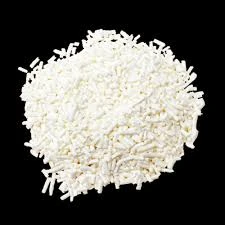
E471 Permitted Emulsifier - Uses, Benefits, and Safety
Understanding Permitted Emulsifier E471 What You Need to Know
Emulsifiers are essential ingredients in the food industry, playing a critical role in stabilizing mixtures that ordinarily don’t mix well, such as oil and water. Among these emulsifiers, E471 is widely recognized for its efficiency and versatility. It is derived from fatty acids, and its primary function is to enhance the texture, appearance, and shelf-life of various food products.
E471, also known as mono- and diglycerides of fatty acids, is approved for use in many countries, including those in the European Union and the United States, making it a permitted emulsifier in a wide array of food applications. This compound is often sourced from both plant and animal fats, which raises questions among consumers concerned about dietary restrictions and preferences, such as veganism or vegetarianism. Fortunately, manufacturers usually specify the origin of E471 in their ingredient lists, allowing conscientious consumers to make informed choices.
Understanding Permitted Emulsifier E471 What You Need to Know
Moreover, E471 contributes not just to the stability of emulsions but also to textural properties. It can enhance creaminess and mouthfeel in products, making them more appealing to consumers. In baked products, it aids in improving volume and crumb structure, ensuring that products are light and airy.
permitted emulsifier e471

E471 is not just limited to food products; it also finds its application in non-food items like cosmetics and personal care products, where it serves as a stabilizer and texturizer. This versatility has solidified its importance across various industries.
Despite its widespread use, some consumers express concerns regarding the safety and health implications of emulsifiers like E471. The good news is that regulatory agencies, including the Food and Drug Administration (FDA) and the European Food Safety Authority (EFSA), have deemed E471 safe for consumption. Studies have found that when consumed in moderation as part of a balanced diet, E471 poses no significant health risks to the general population.
However, as with any food additive, some individuals may experience sensitivities or allergic reactions. It is crucial for consumers with specific dietary concerns, such as allergies to certain fats or those following strict vegan diets, to read ingredient labels carefully.
In conclusion, E471 serves as a vital emulsifier in contemporary food production, contributing to the texture, stability, and overall quality of a wide range of products. While it is generally recognized as safe, consumers are encouraged to remain informed about the ingredients in their food. Understanding emulsifiers like E471 can empower individuals to make better dietary choices while reaping the benefits of modern food technology.
-
Pure Sodium Dichloroisocyanurate Dihydrate | Powerful DisinfectantNewsAug.29,2025
-
Industrial Chemicals: Quality & Purity for Every IndustryNewsAug.28,2025
-
Nitrile Rubber Honoring Strict Production StandardsNewsAug.22,2025
-
Aspartame Ingredients Honoring Food Safety ValuesNewsAug.22,2025
-
Fertilizer for Balanced Plant NutritionNewsAug.22,2025
-
Cyanide Gold Processing with High Purity AdditivesNewsAug.22,2025
-
Formic Acid in Textile Dyeing ApplicationsNewsAug.22,2025
Hebei Tenger Chemical Technology Co., Ltd. focuses on the chemical industry and is committed to the export service of chemical raw materials.
-

view more DiethanolisopropanolamineIn the ever-growing field of chemical solutions, diethanolisopropanolamine (DEIPA) stands out as a versatile and important compound. Due to its unique chemical structure and properties, DEIPA is of interest to various industries including construction, personal care, and agriculture. -

view more TriisopropanolamineTriisopropanolamine (TIPA) alkanol amine substance, is a kind of alcohol amine compound with amino and alcohol hydroxyl, and because of its molecules contains both amino and hydroxyl. -

view more Tetramethyl Thiuram DisulfideTetramethyl thiuram disulfide, also known as TMTD, is a white to light-yellow powder with a distinct sulfur-like odor. It is soluble in organic solvents such as benzene, acetone, and ethyl acetate, making it highly versatile for use in different formulations. TMTD is known for its excellent vulcanization acceleration properties, which makes it a key ingredient in the production of rubber products. Additionally, it acts as an effective fungicide and bactericide, making it valuable in agricultural applications. Its high purity and stability ensure consistent performance, making it a preferred choice for manufacturers across various industries.





